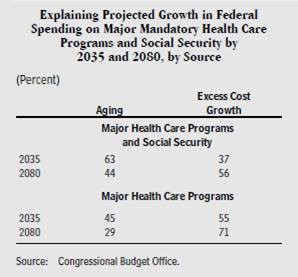Why Rationing Is Fiscally “Timid”
A Washington Post article over the weekend provided a look at both parties’ plans (such as they are) regarding Medicare. Of particular note was a concluding comment by former SEIU president Andy Stern: “You have sort of the boldness of Ryan and the timidity of the alternative.” That a Fiscal Commission member – and no rabidly conservative one at that – could characterize Democrats’ Medicare proposals as “timid” provides yet another illustration of the President’s willingness to lead from behind on this issue.
Yet one can reasonably ask how quotes about Democrats’ “timid” alternative can be reconciled with the arguments by George Will and others that Obamacare’s Independent Payment Advisory Board will result in a Road to Rationing. After all, won’t rationing save enough money to make Medicare solvent for many decades? How can the President’s plan be harmful to seniors, yet fiscally “timid” at the same time?
The answer to this apparent conundrum can be found CBO’s June 2010 report on the long-term budget outlook. In that report is a chart (reproduced below) on page 11 of the document, which quantifies the effect of aging on entitlement programs. The chart estimates that between now and 2035, 63% of the growth in entitlement spending, and 45% of the growth in health care entitlement spending, will be driven by demographic factors associated with the retirement of the Baby Boomers and general aging of the American population. In other words, even if health care costs were brought under control, entitlement programs face significant structural difficulties, as nearly half of the growth in entitlement spending over the next generation comes from demographics, NOT rising costs.
Because Medicare faces twin threats – from both rising costs AND demographic changes – the program needs structural reforms as well as innovations to lower costs. The nearly singular focus of President Obama’s deficit “plan” on its board of unaccountable bureaucrats led the President to avoid proposing structural changes addressing the demographic impact of the Baby Boomers – meaning the President’s proposal will NOT materially improve the program’s long-term solvency. If implemented as intended, the result of the President’s “timid” proposal could be the worst of both worlds: arbitrary Medicare payment reductions that lead to significant access problems for seniors, but failure to enact the structural reforms needed to ensure the program’s long-term solvency.
